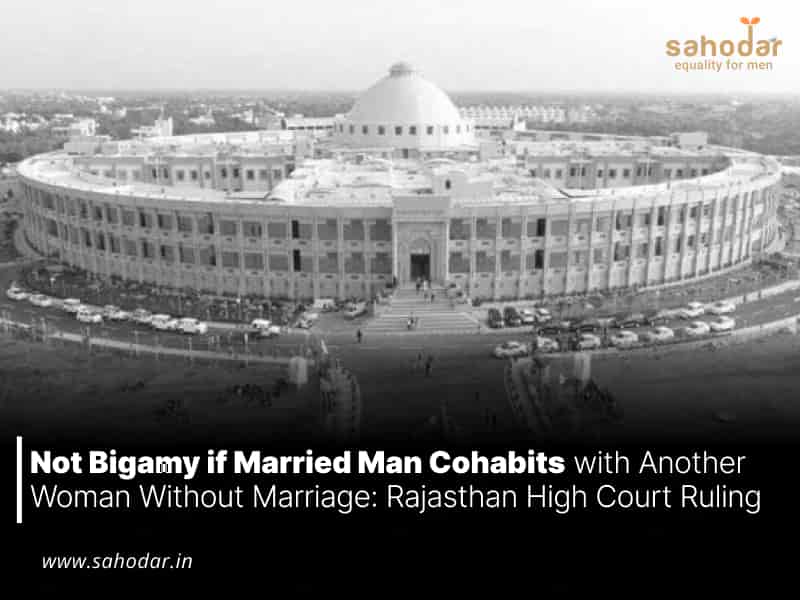Merely because a couple (including, in this case, a man already married to another) lives together as husband and wife, it would not be considered bigamy if they have not performed a valid marriage, the Court said.
The Rajasthan High Court recently noted that the crime of bigamy does not apply if a married individual cohabits with another partner without entering into a second marriage.
Justice Kuldeep Mathur made this observation in a case where a married man was accused of bigamy by his wife for living with another woman.
The judge clarified that the offence defined under Section 494 of the Indian Penal Code (IPC) – which pertains to marrying again during the lifetime of a spouse – does not occur unless a second marriage is formally conducted while the first marriage is still valid.
The Court emphasized that simply cohabiting with another person does not constitute bigamy; a second marriage must be performed for the offence to arise.
“It is settled law that the offence punishable under Section 494 IPC would be made out against any person if he/she solemnizes a marriage during the lifetime of either the husband or wife; as the case may be. The mere fact of a man and a woman living together as husband and wife would not be considered as an offence punishable under Section 494 IPC if they have not performed of a valid marriage in accordance with the existing law,” the May 7 order states.
In this case, a man (the petitioner) was charged with bigamy, cruelty, and other offences under the IPC based on a complaint from his wife.
He subsequently filed a petition with the High Court to challenge the ongoing criminal proceedings against him in the trial court.
The petitioner’s counsel argued that there was no claim that he had entered into a second marriage with another woman by performing the necessary religious ceremonies.
Even the wife (complainant) admitted that her husband was not married to another woman.
The counsel also argued that the wife lodged the bigamy complaint over twenty years after the alleged offence, solely to harass and humiliate him.
The wife’s counsel countered by arguing that even if the husband had a relationship with another woman under the customs of Nata marriage (a practice where two individuals can form a marriage-like relationship without legal and religious/social obligations, with or without divorce from an existing marriage), he would still be guilty of bigamy.
However, the Court noted that there was no evidence to prove that the petitioner had entered into a second marriage with another woman.
“There is nothing on record to establish as to whether the same (Nata marriage) was done by following the marriage ceremonies required by the personal law governing the parties or by following the essential ceremonies for a Nata marriage,” the Court added.
The Court concluded that the offence of bigamy was not established and thus quashed the criminal proceedings pending against the accused man in the trial court.
Advocate Navneet Poonia represented the petitioner, Public Prosecutor AR Choudhary represented the State, and advocate Aasu Devi appeared for the complainant.
In a related development, the Punjab and Haryana High Court expressed a differing opinion, stating that a person living “a lustful and adulterous” life without divorcing an earlier spouse could be held liable for bigamy.
More recently, the Delhi High Court stated that the absence of a law criminalizing adultery does not grant individuals immunity to marry others while their first marriage is still in effect.

